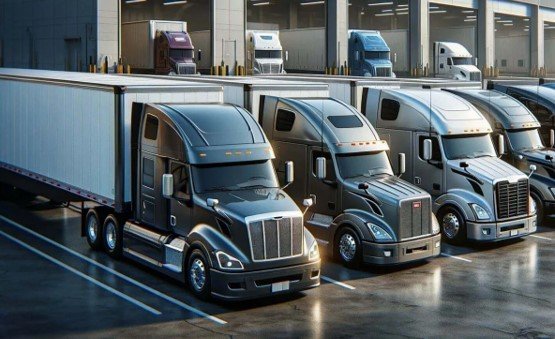Subtotal $0.00
The state of California’s decision to withdraw its remaining waiver requests to the Environmental Protection Agency (EPA) marks a pivotal moment in the debate over environmental regulation, economic impact, and state versus federal authority. The withdrawal comes as President Joe Biden’s administration concludes, leaving unresolved the contentious question of whether California should be allowed to enact emissions standards stricter than federal requirements.
A Shift in Federal Climate Strategy
Under the Biden administration, California had enjoyed support for its ambitious air quality and climate policies. Four of the state’s eight requested waivers were fully approved, with two others receiving partial approval. These approvals supported groundbreaking measures, such as the Omnibus Low-NOx Regulation, which aimed to drastically reduce nitrogen oxide (NOx) emissions from heavy-duty vehicles. However, time ran out for California’s Advanced Clean Fleets (ACF) proposal, which sought to transition trucking fleets to zero-emission vehicles between 2035 and 2042.
The incoming Trump administration, led by President-elect Donald Trump and Lee Zeldin, his nominee for EPA Administrator, signals a stark contrast. Both have pledged to prioritize deregulation, citing concerns over economic growth and regulatory burdens. The trucking industry and other stakeholders expect California’s remaining waivers to face repeal or denial under the new administration, potentially halting the state’s ambitious climate initiatives.
Perspectives from Stakeholders
The trucking industry, which has long opposed California’s ACF rule, expressed relief at the withdrawal. Industry leaders argued that the regulation, while well-intentioned, was unfeasible in its current form. Chris Spear, President of the American Trucking Associations, characterized the ACF rule as “job-killing” and disruptive to the supply chain, asserting that it lacked the promised environmental benefits. Similarly, Eric Sauer of the California Trucking Association emphasized the need for “technologically feasible and cost-effective” solutions to reduce emissions while maintaining supply chain stability.
Other groups, like the Clean Freight Coalition, applauded the withdrawal as an opportunity to reset the conversation. Jim Mullen, CFC’s executive director, criticized the ACF rule as regulatory overreach but reaffirmed the industry’s commitment to reducing its emissions footprint through a diverse range of approaches.
Conversely, California Air Resources Board (CARB) Chair Liane Randolph expressed disappointment over the EPA’s inability to act on all requests before the transition in federal leadership. Randolph maintained that urgent action is necessary to address the public health and climate challenges facing California, signaling CARB’s intent to continue pursuing cleaner air and reduced emissions.
The Broader Implications
The withdrawal of California’s waivers reflects deeper tensions in the ongoing national debate over environmental policy. Critics of California’s approach argue that the state’s stringent regulations risk economic harm, particularly for small trucking companies unable to shoulder the costs of compliance. Advocates contend that California’s leadership is essential in tackling the pressing issues of air pollution and climate change, which disproportionately affect vulnerable populations.
The trucking industry’s concerns are not without merit. Transitioning to zero-emission fleets requires substantial investment in technology and infrastructure, costs that many argue should be shared at a national level rather than concentrated in one state. Yet California’s defenders point out that their standards often drive innovation, creating ripple effects that benefit other states and industries.
Looking Ahead
With the Trump administration poised to reassess CARB’s regulatory framework, the future of emissions standards in California and nationwide remains uncertain. While deregulation proponents celebrate the rollback of what they view as overreach, environmental advocates caution against losing momentum in the fight against climate change.
As CARB evaluates its options, the state will likely seek alternative pathways to advance its clean air agenda. Whether through collaboration with federal agencies or independent state actions, California’s efforts will remain a bellwether for the intersection of environmental policy and economic pragmatism.
The challenge moving forward will be finding a balanced approach—one that harmonizes the urgent need for emissions reductions with the realities of economic impact and technological capability. Achieving this balance will require cooperation among federal and state governments, industry leaders, and environmental advocates, all working toward a shared vision of sustainable progress.


